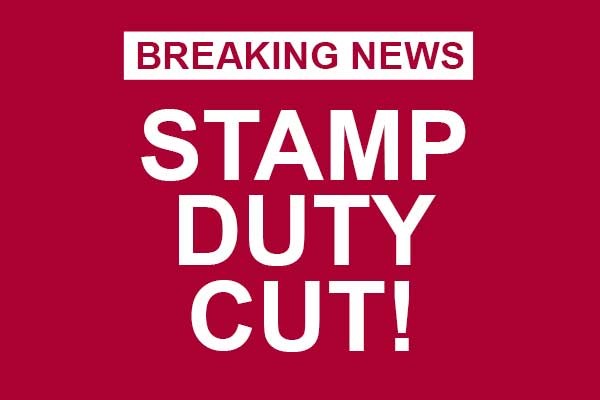What Are the Stamp Duty Cut Changes And How Do They Affect Me?
Keep up-to-date with all the latest property news & updates.

Rishi Sunak, the Chancellor of Exchequer, has recently announced plans to make certain properties exempt from stamp duty. Billed as a “stamp duty holiday”, this will immediately make homes worth up to £500,000 completely exempt from the usual tax. Part of a “mini-budget” in response to the coronavirus pandemic, it aims to rejuvenate the housing market.
Here are all the key facts you need to know about this temporary measure.
What Does Stamp Duty Involve?
Stamp duty - or stamp duty land tax (SDLT) - is an amount of money that has to be paid whenever someone chooses to purchase an amount of land or a property for more than a certain amount of money. However, the exact amount of money is determined by the price of that land or property, as well as by the type of that land or property. For example, some relevant factors include whether it is residential, used for multiple purposes, and whether you’ve bought property before.
Where Does Stamp Duty Apply?
Stamp duty land tax is relevant to all land and property in Northern Ireland and England. In Wales, there’s land transaction tax for any purchase made after March 2018, and in Scotland there’s a land and buildings transaction tax applicable to all owned properties and land.
Where Are Stamp Duty Tax Returns Sent?
If you complete a land or property purchase, you need to submit a stamp duty land tax return within two weeks. Those who fail to do so incur penalties, and interest is also added to what they owe.
How Expensive Is Typical Stamp Duty Tax?
If you own a property that is worth more than £125,001 and less than £250,000, then you pay stamp duty tax at a rate of 2%. This raises to 5% in the next bracket of £675,000. Then, with respect to properties valued between £925,000 and £1.5 million, the rate is 10-12%. All such rates are applicable if you’ve already purchased properties, but they don’t apply if you’re a first-time buyer who owns a property up to £300,000.
Who Is Affected by the Current Stamp Duty Cut?
The new stamp duty “holiday” set the threshold for stamp duty land tax between £300,000 and £500,000. So, if you’re about to purchase something from the less expensive end of the market, you’ll be exempt from stamp duty for a significant while. For example, if you’ve bought a property before and you make a new purchase of £238,000, the cost is reduced by £2,260. Meanwhile, if you’re buying a home for the first time and you purchase one for £500,000, the current rules would see you saving an impressive £10,000.
Is The Stamp Duty Cut A Good Development?
The above sounds like it’ll help many buyers improve their lives and save money, giving the UK economy a much-needed jolt in the process. However, leading economists caution that it has the potential to damage the property market in the meantime. More specifically, people are likely to delay purchasing if they know they can wait and get the stamp duty exemption later. This means there’s good reason to bring the changes into effect as soon as possible, rather than advertising them far in advance.
Date: 08/07/20

